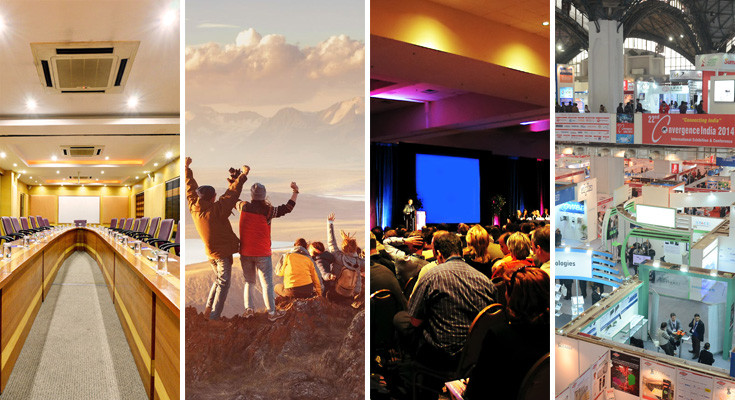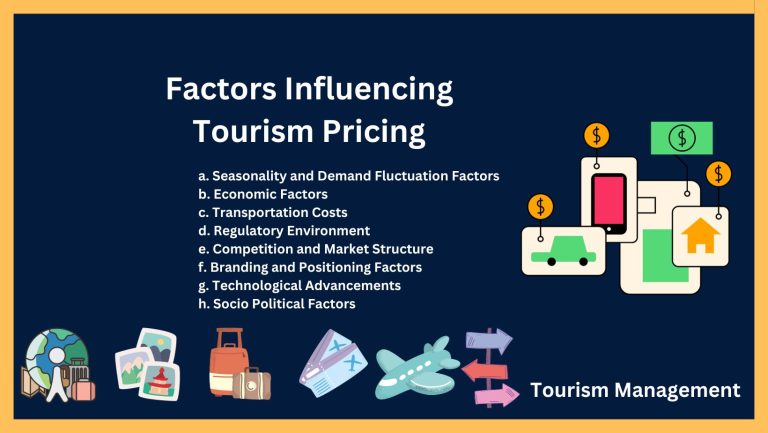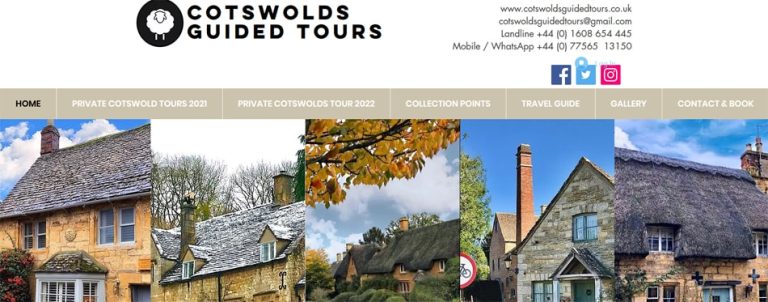Inbound Tour Operators A Deep Dive
Inbound tour operators are the vital link connecting international tourists with destinations. They meticulously craft experiences, from arranging flights and accommodations to designing engaging activities. Understanding their role, the market they serve, and their key strategies is crucial for anyone involved in the global tourism industry. This exploration delves into the world of inbound tour operators, highlighting their significance and the challenges they face.
This comprehensive overview examines the intricacies of inbound tourism, analyzing the services offered, the challenges and opportunities, and the strategies employed by successful operators. The market analysis segment will illuminate current trends and future projections, while the case studies section offers practical insights from successful operators.
Defining Inbound Tour Operators
Inbound tour operators play a crucial role in the tourism industry, acting as intermediaries between international tourists and the destinations they visit. They specialize in organizing and managing the travel experiences of foreign visitors, ensuring smooth and enjoyable trips. This involves handling all the logistical aspects, from transportation and accommodation to activities and excursions, allowing tourists to fully immerse themselves in the destination culture.
Inbound tour operators distinguish themselves from outbound tour operators, who organize trips for domestic tourists. Inbound operators, on the other hand, focus exclusively on attracting and facilitating the travel of international visitors. This specialized focus allows them to tailor services to the unique needs and preferences of foreign travelers, often possessing deep local knowledge and expertise.
Inbound Tour Operators vs. Other Tourism Businesses
Inbound tour operators differ significantly from other tourism-related businesses, such as hotels and travel agencies. While hotels primarily provide accommodation, and travel agencies facilitate booking, inbound tour operators orchestrate the entire tourist experience. They act as a central hub, coordinating various elements to create a cohesive and memorable journey for international visitors. This includes arranging transportation, securing accommodations, arranging tours, and providing local guides. This holistic approach differentiates them, making them indispensable for destinations aiming to attract international tourism.
Key Services Offered by Inbound Tour Operators
Inbound tour operators provide a wide range of services to ensure a seamless travel experience for international visitors. These services are tailored to meet the specific needs and expectations of each group or individual.
| Service Category | Description |
|---|---|
| Transportation | Arranging airport transfers, internal transportation (e.g., buses, trains), and ground transportation to various attractions. This includes securing appropriate vehicles, managing schedules, and ensuring safety. |
| Accommodation | Booking and managing hotel stays, often with a focus on accommodations that cater to international tourists. This includes negotiation of rates, ensuring quality, and handling any guest concerns. |
| Activities & Tours | Planning and executing guided tours, excursions, and other activities at the destination. This often includes arranging entry tickets, coordinating with local guides, and providing comprehensive information about the attractions. |
| Visa & Immigration Assistance | Assisting with visa applications and other immigration-related procedures, particularly for international visitors, to simplify the process and ensure compliance. |
| Local Expertise | Leveraging their deep knowledge of the destination to provide valuable insights and recommendations, catering to the interests and needs of international tourists. |
| Cultural Experiences | Arranging cultural events, workshops, and interactions that allow international visitors to engage with the local culture. |
Market Analysis of Inbound Tour Operators
Inbound tour operators play a vital role in facilitating international tourism. Understanding the key markets, demographics, and trends is crucial for success in this dynamic sector. Analyzing the competitive landscape and anticipating future demands are equally important to strategic planning.
Key Markets and Target Demographics
Inbound tour operators cater to a diverse range of international travelers. Understanding the preferences and expectations of different visitor segments is essential for tailoring services effectively. This includes analyzing the motivations, travel styles, and budget ranges of potential tourists. Major markets often include countries with strong tourism economies, such as the United States, Europe, and Asia. Within these markets, operators may target specific demographic groups, such as families, adventure travelers, or luxury tourists. This segmentation allows for the development of targeted marketing campaigns and the creation of customized itineraries that cater to particular interests and needs.
Current Trends and Future Projections
The inbound tour operator industry is constantly evolving, driven by technological advancements and shifting consumer preferences. Current trends include an increasing demand for personalized experiences, sustainable travel options, and flexible itineraries. The rise of online travel agencies (OTAs) and social media platforms has significantly impacted the industry, requiring operators to adopt digital marketing strategies and leverage online channels for customer engagement. Future projections suggest a continued growth in the demand for unique and authentic experiences, highlighting the importance of cultural immersion and local engagement. The growing popularity of eco-tourism and responsible travel is also likely to influence future trends. For example, the increasing number of tourists interested in nature-based activities has created a niche market for operators specializing in responsible tourism and environmental conservation.
Factors Influencing Demand for Inbound Tourism Services
Several factors contribute to the demand for inbound tourism services. These include economic stability in source countries, attractive exchange rates, and positive media portrayals of the destination country. Government policies promoting tourism, such as visa facilitation and infrastructure development, also significantly impact the demand. Furthermore, factors such as geopolitical stability and safety concerns play a significant role in shaping tourist behavior. For instance, recent events or changes in geopolitical landscapes can significantly impact the flow of inbound tourism to specific destinations.
Competitive Landscape
The inbound tour operator market is highly competitive, featuring both established players and emerging competitors. Major players often possess extensive experience, strong brand recognition, and a vast network of relationships with hotels, transportation providers, and local businesses. Emerging competitors often leverage technology and innovative business models to offer unique services and cater to specific niches within the market. This competitive environment necessitates a focus on operational efficiency, cost-effectiveness, and a commitment to providing exceptional customer service to stand out from the competition.
Comparison of Inbound Tour Operators
| Inbound Tour Operator | Strengths | Weaknesses |
|---|---|---|
| ABC Tours | Strong brand recognition, extensive network of local partners, and a wide range of customized itineraries. | Potentially high operational costs and less flexibility for smaller groups or niche markets. |
| XYZ Travel | Focus on sustainability and responsible tourism, appealing to environmentally conscious travelers. | Limited brand awareness compared to larger competitors, potentially higher prices for some services. |
| Local Discoveries | Emphasis on authentic cultural experiences and local engagement. | Potential challenges in managing large groups or adapting to varying tourist preferences. |
This table highlights key aspects of different inbound tour operators. Each company possesses a unique combination of strengths and weaknesses, impacting its competitiveness and market positioning. Understanding these differences allows operators to identify opportunities for strategic differentiation and competitive advantage.
Services Offered by Inbound Tour Operators
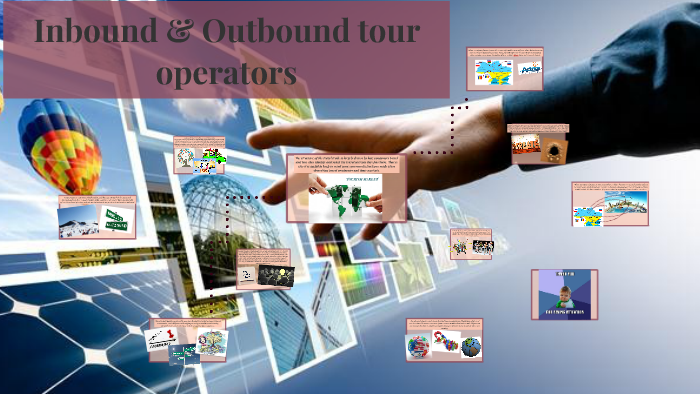
Inbound tour operators act as vital intermediaries for international tourists, facilitating their travel experiences within a destination country. They meticulously curate tailored travel plans, handling logistical complexities, ensuring a smooth and memorable journey for their clients. This includes everything from pre-trip consultations to post-trip follow-up.
Comprehensive List of Services
Inbound tour operators provide a wide array of services designed to cater to the diverse needs and preferences of inbound tourists. Their services extend beyond the fundamental elements of travel, encompassing a range of support and activities to create an enriching experience.
- Visa and Passport Assistance: Inbound tour operators often assist with visa applications, ensuring tourists have the necessary documentation for entry into the country.
- Transportation Arrangements: From airport transfers to guided tours, inbound operators handle all aspects of ground transportation, providing vehicles and drivers for seamless travel.
- Accommodation Booking: Operators work with hotels, resorts, and other accommodations to secure suitable lodgings for tourists, ensuring comfort and convenience.
- Activity Planning: This encompasses arranging cultural excursions, historical tours, recreational activities, and other experiences tailored to the tourists’ interests.
- Local Guide Services: Experienced local guides are often arranged to provide insights into the destination’s culture, history, and attractions.
- Ticketing and Booking: Inbound operators handle the purchase of tickets for attractions, shows, and other events, saving tourists time and effort.
- Currency Exchange and Payment Handling: They may assist with currency exchange and manage payments for various services.
- Emergency Support: Inbound operators offer support and assistance in case of emergencies during the tour.
- Pre-Trip Consultation and Post-Trip Follow-up: This involves thorough pre-trip consultations to understand the tourists’ needs and preferences, followed by post-trip feedback to improve services.
Organizing an Inbound Tour Package
The process of organizing a tour package for inbound tourists is meticulous and requires careful coordination of various elements. It involves understanding the tourists’ desires, matching them with suitable activities, and ensuring a smooth transition throughout the entire trip.
- Needs Assessment: The operator starts by understanding the specific needs and preferences of the inbound tourist, including their interests, budget, travel style, and any special requirements.
- Destination Selection: Based on the tourist’s preferences, the operator chooses the most suitable destination and attractions.
- Accommodation and Transportation Arrangements: The operator secures suitable accommodations and transportation options, ensuring they align with the tourist’s needs and budget.
- Activity Planning and Booking: The operator meticulously plans and books activities, tours, and other experiences that meet the tourists’ interests.
- Documentation and Permits: The operator ensures all necessary documentation, permits, and visas are obtained for the smooth execution of the tour.
- Finalization and Confirmation: The operator confirms all arrangements with the tourists and provides them with detailed information about the itinerary and necessary travel documents.
Arranging Transportation, Accommodation, and Activities
Inbound tour operators handle the logistics of arranging transportation, accommodation, and activities, taking care of all the details to ensure a seamless and enjoyable experience for inbound tourists.
- Transportation: This involves coordinating transportation from airports to hotels and arranging transportation for sightseeing tours, often employing private cars, buses, or other modes of transport.
- Accommodation: The operator selects hotels or other accommodations based on the tourists’ needs, ensuring they align with the budget and preferences.
- Activities: The operator meticulously plans and arranges activities, including tours, cultural experiences, and entertainment, aligning them with the tourists’ interests.
Examples of Popular Inbound Tour Packages
Inbound tour operators offer diverse packages catering to various interests. Examples include historical tours for those interested in history, adventure packages for thrill-seekers, and cultural experiences for those seeking immersion in local traditions.
- Historical Tour Package (e.g., Ancient Rome): This package focuses on historical sites, museums, and guided tours, offering insights into the region’s rich past.
- Adventure Tour Package (e.g., Hiking in the Himalayas): This package includes guided treks, camping experiences, and other adventurous activities.
- Cultural Experience Package (e.g., Japanese Tea Ceremony): This package focuses on immersing tourists in local traditions and cultural practices.
Pricing Structure for Inbound Tour Packages
The pricing structure for inbound tour packages varies depending on numerous factors, including the duration of the trip, the level of service provided, and the destination.
| Package Type | Duration (Days) | Estimated Price (USD) |
|---|---|---|
| Historical Tour | 7 | $2,500 – $3,500 |
| Adventure Tour | 10 | $4,000 – $6,000 |
| Cultural Experience | 5 | $1,500 – $2,500 |
Note: Prices are estimates and may vary depending on the specific inclusions and the operator.
Key Challenges and Opportunities
Inbound tour operators navigate a dynamic landscape, facing both significant hurdles and exciting prospects. The industry’s success hinges on adapting to evolving travel preferences, technological advancements, and global economic shifts. This section explores the key challenges and opportunities for inbound tour operators, considering regional variations and the impact of emerging technologies.
Major Challenges Faced by Inbound Tour Operators
Inbound tour operators encounter a multitude of challenges, ranging from maintaining profitability to catering to diverse customer demands. Competition from established players and emerging startups necessitates a focus on differentiation and value-added services. Fluctuations in exchange rates, political instability in certain regions, and unforeseen events can significantly impact profitability and operational stability.
- Maintaining Profitability: High operational costs, including marketing expenses, staff salaries, and vendor commissions, can strain profit margins, especially for smaller operators. Maintaining profitability requires careful cost management and strategic pricing strategies. For example, some operators have explored cost-sharing models or partnerships to offset expenses.
- Competition and Differentiation: The global tourism market is intensely competitive. Established players and new entrants offer a wide range of services, necessitating inbound tour operators to differentiate their offerings through specialized niche services, exceptional customer service, and unique itineraries.
- Managing Risk and Uncertainty: Geopolitical instability, natural disasters, and economic downturns pose significant risks. Effective risk management strategies are essential for mitigating potential losses and maintaining operational continuity. These strategies might involve diversifying client portfolios or implementing contingency plans.
Opportunities Available to Inbound Tour Operators
The inbound tour operator industry presents numerous opportunities for growth and innovation. Catering to the burgeoning demand for personalized and immersive experiences, leveraging technology to streamline operations, and focusing on specific market segments are key strategies for success.
- Targeting Niche Markets: Focusing on specific interests, such as cultural immersion, adventure travel, or culinary tourism, allows operators to cater to a more refined segment of travelers, potentially charging premium prices and enhancing their brand image. For example, a tour operator specializing in historical city tours might attract a more affluent demographic.
- Leveraging Technology: Implementing online booking platforms, utilizing mobile applications for itinerary management, and incorporating real-time data analysis tools can streamline operations and enhance the customer experience. This can also lead to more effective marketing strategies.
- Partnering with Local Businesses: Collaborating with local hotels, restaurants, and cultural attractions enhances the authenticity and value of tour packages. This creates opportunities for shared marketing efforts and potentially higher revenue streams.
Impact of Emerging Technologies on the Inbound Tour Operator Industry
Technological advancements are transforming the way inbound tour operators operate and interact with customers. These advancements include AI-powered chatbots, virtual reality experiences, and online booking platforms.
- Enhanced Customer Experience: Virtual reality tours can immerse potential customers in the destination experience before they travel, while AI-powered chatbots can provide instant support and answer queries 24/7. These technologies enhance the overall customer journey.
- Streamlined Operations: Online booking platforms and inventory management systems automate many aspects of tour operations, minimizing manual tasks and improving efficiency. This allows tour operators to focus on customer service and relationship building.
- Data-Driven Decision Making: Data analytics provide valuable insights into customer preferences, market trends, and operational performance. These insights enable data-driven decisions regarding pricing, marketing, and product development.
Challenges and Opportunities in Different Geographic Regions
The inbound tour operator landscape varies significantly across different geographic regions. Economic conditions, cultural nuances, and infrastructure development influence the challenges and opportunities for tour operators in each region.
| Region | Key Challenges | Key Opportunities |
|---|---|---|
| Asia | Competition from established players, managing cultural sensitivities, and infrastructure development in some areas | Growing middle class, demand for immersive experiences, niche tourism opportunities |
| Europe | High operational costs, strict regulations, and maintaining competitiveness among established players | Historical significance, cultural richness, demand for curated experiences |
| Latin America | Infrastructure limitations in some areas, security concerns, and fluctuating exchange rates | Unique cultural experiences, natural beauty, emerging tourism markets |
Adapting to Changing Market Demands
The travel industry is constantly evolving. Adapting to changing market demands, incorporating sustainable practices, and offering personalized experiences are essential for inbound tour operators to thrive in the future.
- Sustainable Tourism: Embracing sustainable practices is becoming increasingly important to travelers. Tour operators can incorporate eco-friendly transportation options, support local communities, and minimize their environmental footprint to attract environmentally conscious tourists.
- Personalized Experiences: Offering customized itineraries and services that cater to individual traveler preferences can create a unique and memorable experience. This approach enhances customer loyalty and brand reputation.
Inbound Tour Operator Strategies
Attracting inbound tourists requires a multifaceted approach, encompassing various strategies for building relationships, crafting compelling packages, and effectively promoting services. Inbound tour operators play a crucial role in shaping the visitor experience and fostering positive perceptions of the destination. Successful operators understand the importance of tailored strategies to cater to specific market segments and proactively address potential challenges.
Strategies for Attracting Inbound Tourists
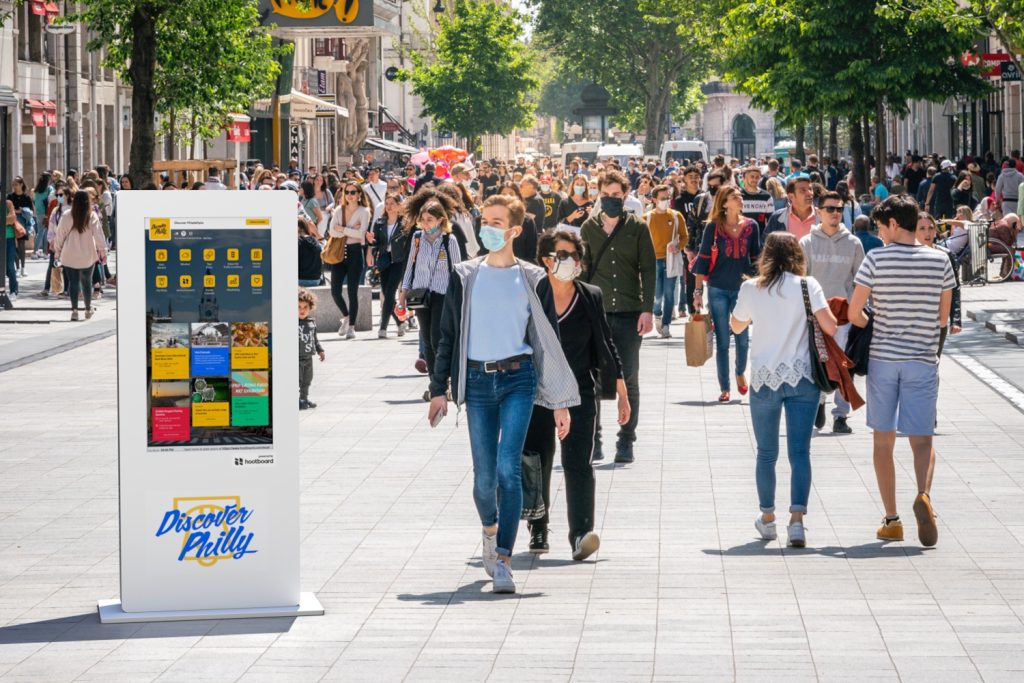
Inbound tour operators must employ diverse strategies to draw tourists to their destinations. These include focusing on unique selling propositions (USPs), creating memorable experiences, and highlighting the destination’s cultural and natural attractions. By showcasing the destination’s distinct charm and offering value-added services, operators can effectively attract and retain tourists.
- Highlighting Unique Selling Propositions (USPs): Inbound operators should identify and promote the unique characteristics of their destination. This could include historical landmarks, natural beauty, cultural events, or specific activities that set it apart from competitors.
- Creating Memorable Experiences: Offering tailored itineraries and activities that cater to diverse interests and preferences is essential. This includes immersive cultural experiences, adventure tours, culinary tours, and personalized interactions with local communities.
- Promoting Destination Culture and Attractions: Showcase the destination’s rich cultural heritage, historical sites, and natural wonders through compelling narratives and visual presentations. This could include showcasing local traditions, festivals, and artistic expressions.
- Catering to Specific Market Segments: Recognizing that different tourist groups have unique needs and interests is vital. Operators should tailor their services and packages to attract specific segments, such as families, adventure travelers, or luxury tourists.
Building Relationships with Travel Agents and Tour Operators
Strong relationships with travel agents and other tour operators are paramount for success in the inbound tourism market. These partnerships facilitate distribution channels and provide valuable insights into market trends and customer preferences.
- Collaboration and Communication: Establish and maintain open communication channels with key travel agents and tour operators. Regular updates, joint marketing initiatives, and feedback sessions are crucial for building trust and fostering a collaborative spirit.
- Exclusive Deals and Incentives: Offering exclusive deals, commissions, and incentives to travel agents can encourage them to promote inbound tourism packages.
- Providing Comprehensive Support Materials: Furnishing travel agents with detailed information about destinations, including itineraries, pricing, and customer testimonials, facilitates informed decision-making and promotes sales.
- Training and Workshops: Conducting workshops and training sessions to educate travel agents about the destination and its offerings can enhance their knowledge and confidence in recommending the services.
Developing Innovative and Engaging Tour Packages, Inbound tour operators
Innovation is key to standing out in the competitive inbound tourism market. This requires creativity in designing tour packages that offer unique and engaging experiences.
- Tailoring Packages to Specific Interests: Design diverse packages catering to various interests, including adventure tourism, cultural immersion, or relaxation and wellness. This can involve customized itineraries and activities based on individual preferences.
- Incorporating Local Experiences: Highlight local experiences by incorporating interactions with local communities, attending cultural events, and enjoying traditional cuisine. This fosters authentic connections with the destination.
- Integrating Technology: Leveraging technology to enhance the tour experience, such as online booking platforms, interactive maps, and virtual tours, can create a more convenient and engaging journey for tourists.
- Partnering with Local Businesses: Collaborating with local businesses, such as hotels, restaurants, and transportation providers, can create a seamless and enriching travel experience for tourists. This also supports the local economy.
Promoting Inbound Tourism Services
Effective promotion is critical for attracting inbound tourists. This requires a strategic and comprehensive approach across various channels.
- Utilizing Digital Marketing Channels: Leveraging digital marketing platforms like social media, search engine optimization, and online advertising to reach a wider audience.
- Developing a Strong Online Presence: Creating a professional and informative website that showcases the destination’s unique attractions, services, and testimonials.
- Participating in Travel Trade Shows: Attending international travel trade shows and conferences to network with potential clients and showcase inbound tourism offerings.
- Utilizing Public Relations and Media Outreach: Building relationships with travel journalists and bloggers to generate positive media coverage and promote the destination.
Marketing Strategies for Inbound Tour Operators
A structured marketing approach is crucial for attracting inbound tourists.
| Marketing Strategy | Description | Example |
|---|---|---|
| Social Media Marketing | Utilizing platforms like Facebook, Instagram, and Twitter to showcase the destination’s attractions and promote packages. | Creating visually appealing posts, running contests, and engaging with potential tourists. |
| Search Engine Optimization () | Optimizing website content and online presence to rank higher in search engine results. | Using relevant s, building high-quality content, and securing backlinks. |
| Content Marketing | Creating valuable content, such as blog posts, articles, and videos, to attract and engage potential tourists. | Developing informative guides, showcasing local experiences, and creating engaging videos. |
| Paid Advertising | Utilizing paid advertising platforms like Google Ads and social media ads to target specific audiences. | Targeting specific demographics, interests, and travel styles. |
| Email Marketing | Building an email list and sending targeted emails to potential and existing clients. | Promoting special offers, providing travel updates, and sending newsletters. |
Technology and Innovation

Inbound tour operators are increasingly leveraging technology to enhance their operations and improve the visitor experience. This digital transformation allows for more efficient management of resources, personalized itineraries, and seamless communication with clients, ultimately leading to a competitive edge in the market.
Technological advancements are pivotal in creating a positive and memorable travel experience for inbound tourists. By adopting innovative solutions, tour operators can streamline processes, personalize services, and offer a superior level of service, ultimately fostering loyalty and repeat business.
Use of Technology in Inbound Tour Operations
Technology is revolutionizing how inbound tour operators manage their businesses. From booking systems to communication tools, technology streamlines operations, improving efficiency and reducing costs. Digital platforms enable real-time updates, facilitating proactive adjustments to itineraries and providing flexibility for travelers. This responsiveness is crucial in today’s dynamic travel landscape.
Online Platforms and Digital Marketing Tools
Online platforms are essential for inbound tour operators to reach potential clients. Websites, social media, and online travel agencies (OTAs) serve as crucial channels for showcasing tours, building brand presence, and driving bookings. Effective digital marketing campaigns, including targeted advertising and content creation, are critical for attracting the right audience. Inbound marketing strategies that engage tourists with valuable content, tailored to their interests and needs, are key to success. This strategy aims to build trust and establish a relationship with potential clients before they book.
Improving Customer Experience for Inbound Tourists
Technology is profoundly impacting the inbound tourist experience. Mobile apps, for example, allow travelers to access real-time information, book activities, and connect with tour guides. Personalized itineraries based on customer preferences, generated through data analysis, offer a bespoke travel experience. Real-time tracking of tour participants through GPS-enabled devices enables proactive support and responsiveness to unexpected situations, ensuring a smooth and safe trip.
Potential of Artificial Intelligence in Inbound Tour Operations
Artificial intelligence (AI) presents significant potential for inbound tour operators. AI-powered chatbots can provide instant customer support, answer queries, and guide tourists through the booking process. AI algorithms can analyze data to tailor tour packages to specific preferences, optimize itineraries, and predict potential issues, enabling proactive problem-solving. AI can also help with market analysis, identifying emerging trends and tailoring offerings accordingly. For instance, AI can analyze social media sentiment to gauge customer satisfaction and identify areas for improvement.
Technology Solutions for Inbound Tour Operators
| Technology Solution | Description | Benefits |
|---|---|---|
| Booking and Management Systems | Streamlines the entire booking process, from initial inquiry to final payment. Integrates with other systems for seamless operations. | Enhanced efficiency, reduced manual work, improved accuracy. |
| Customer Relationship Management (CRM) Systems | Manages interactions with clients, tracks preferences, and facilitates personalized communication. | Personalized service, improved client retention, and better understanding of client needs. |
| Mobile Apps | Provides travelers with access to real-time information, bookings, and communication with tour guides. | Improved accessibility, enhanced customer experience, and real-time support. |
| GPS Tracking and Monitoring Systems | Tracks tour participants’ location, enabling proactive support and safety measures. | Enhanced safety, real-time monitoring, proactive response to emergencies. |
| AI-powered Chatbots | Provides instant customer support, answers queries, and guides tourists through the booking process. | 24/7 support, efficient communication, faster response times. |
Case Studies and Examples: Inbound Tour Operators
Inbound tour operators play a vital role in shaping the tourism industry, offering customized travel experiences to international visitors. Examining successful operators provides valuable insights into effective strategies, market trends, and best practices for this sector. Understanding their achievements and challenges can help aspiring operators navigate the competitive landscape and build sustainable businesses.
Examples of Successful Inbound Tour Operators
Several inbound tour operators have achieved significant success through innovative approaches, meticulous planning, and a strong understanding of their target markets. These operators often focus on niche markets or specific regions, tailoring their offerings to cater to the unique interests and preferences of their clientele. They build strong relationships with local businesses and communities to ensure authentic experiences for tourists.
Strategies and Achievements of Successful Operators
Successful inbound tour operators often adopt a multi-faceted approach. This includes strategic partnerships with local businesses, creating unique and memorable experiences, and leveraging technology for enhanced customer service. Their achievements often manifest in high customer satisfaction scores, strong brand recognition, and significant revenue generation. For example, operators focusing on sustainable tourism practices often see a rise in bookings from environmentally conscious travelers.
Detailed Information about Tour Packages
Successful inbound tour operators frequently offer diverse tour packages catering to various interests and budgets. These packages might include city tours, cultural excursions, adventure activities, or a combination of experiences. Detailed packages include:
- Luxury Cultural Immersion: This package typically involves high-end accommodations, private transportation, gourmet dining experiences, and exclusive access to cultural events and historical sites. It caters to affluent travelers seeking a sophisticated and unforgettable experience.
- Adventure and Nature Escapes: This package focuses on outdoor activities like hiking, wildlife viewing, or exploring national parks. Accommodation options could range from eco-lodges to campsites, reflecting the adventurous nature of the trip.
- Family-Friendly City Breaks: These packages are designed to appeal to families with children, incorporating kid-friendly activities, attractions, and accommodations suitable for families. Educational elements or interactive experiences are often integrated.
Key Factors Contributing to Success
Several factors contribute to the success of inbound tour operators. These include:
- Strong Market Research: A thorough understanding of target markets, their preferences, and current trends is crucial. This helps tailor tour packages and marketing efforts to resonate with the desired clientele.
- Exceptional Customer Service: Providing seamless and personalized service throughout the entire travel experience is paramount. This involves attentive support and prompt responses to queries.
- Strategic Partnerships: Collaborating with local businesses, hotels, and transportation providers creates a comprehensive and efficient travel experience.
Case Study Table
| Inbound Tour Operator | Target Market | Key Strategies | Achievements |
|---|---|---|---|
| “Global Explorers” | Adventure-seeking millennials | Focus on unique and off-the-beaten-path destinations, sustainable tourism practices, and strong social media presence. | Increased bookings by 30% in the last year, positive customer reviews on travel platforms. |
| “Cultural Connections” | History and culture enthusiasts | Deep collaboration with local communities, offering authentic cultural experiences, and focusing on heritage tourism. | High customer satisfaction scores, positive media coverage, and recognized as a leader in cultural tourism. |
| “Family Adventures” | Families with children | Kid-friendly activities, family-oriented accommodations, flexible itineraries. | Consistent high demand for packages, positive reviews from families. |
Epilogue
In conclusion, inbound tour operators play a pivotal role in shaping the global tourism landscape. Their ability to cater to diverse tourist needs, navigate market dynamics, and adapt to evolving technologies is paramount. By understanding the key services, strategies, and challenges, operators can position themselves for success in this dynamic sector. The future of inbound tourism hinges on innovation, adaptability, and a deep understanding of the ever-evolving needs of international travelers.
